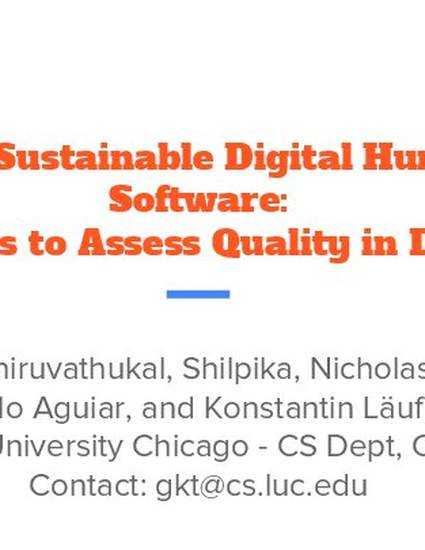
Our work in software quality for digital humanities was borne of an effort to address sustainable practices in scientific software development, where the speaker (Thiruvathukal) co-authored a position paper on the case for software engineering in scientific software development as part of an all-encompassing strategy to create more sustainable scientific software (an example of a well-known scientific software package is LINPACK). In this position paper, we addressed how “progress in scientific research is dependent on the quality and accessibility of software at all levels". This progress depends on embracing the best traditional--and emergent--practices in software engineering, especially agile practices that intersect with the more formal tradition of software engineering. Although this paper was about scientific software development, it could just as easily have been about any interdisciplinary software development community. Our interest in applying what we’ve learned to DH, however, comes from work Thiruvathukal and Hayward have done and/or supervised in DH, especially WoolfOnline and a Richmond Times Dispatch viewer, where more software engineering could have been helpful.